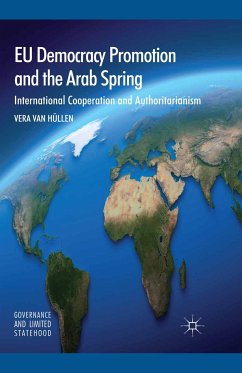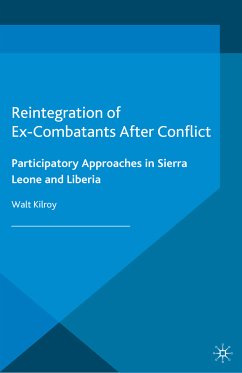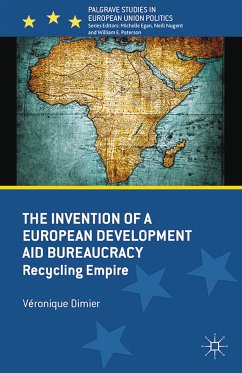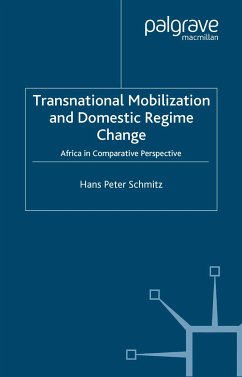
EU Democracy Promotion and the Arab Spring (eBook, PDF)
International Cooperation and Authoritarianism
Versandkostenfrei!
Sofort per Download lieferbar
40,95 €
inkl. MwSt.
Weitere Ausgaben:

PAYBACK Punkte
20 °P sammeln!
The author explores the practice and effects of the European Union's democracy promotion efforts vis-à-vis its authoritarian neighbours in the Middle East and North Africa. She argues that the same set of factors facilitated both international cooperation of authoritarian regimes on democracy promotion and their persistence during the Arab Spring.
Dieser Download kann aus rechtlichen Gründen nur mit Rechnungsadresse in A, B, BG, CY, CZ, D, DK, EW, E, FIN, F, GR, HR, H, IRL, I, LT, L, LR, M, NL, PL, P, R, S, SLO, SK ausgeliefert werden.












